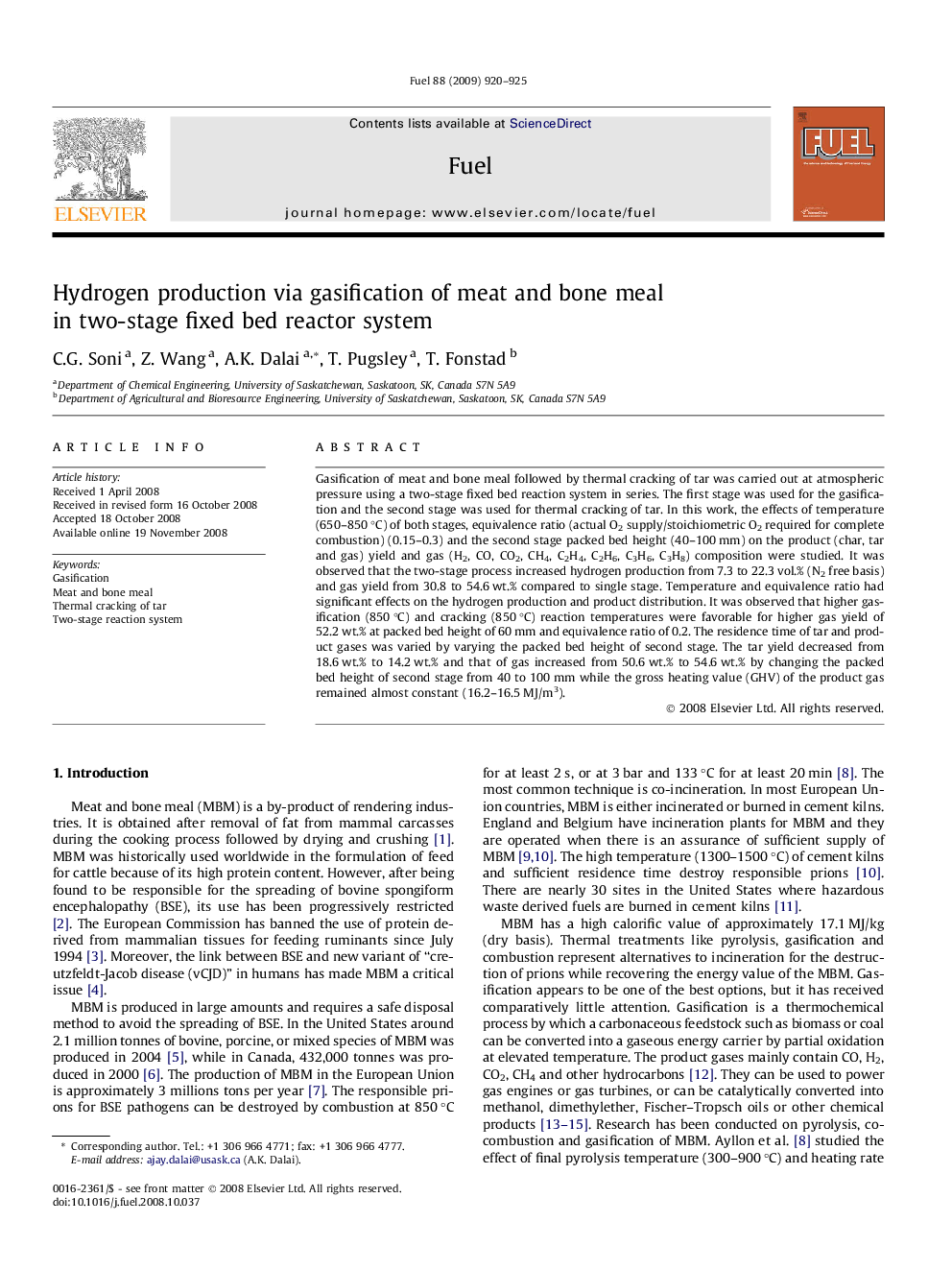| Article ID | Journal | Published Year | Pages | File Type |
|---|---|---|---|---|
| 207380 | Fuel | 2009 | 6 Pages |
Gasification of meat and bone meal followed by thermal cracking of tar was carried out at atmospheric pressure using a two-stage fixed bed reaction system in series. The first stage was used for the gasification and the second stage was used for thermal cracking of tar. In this work, the effects of temperature (650–850 °C) of both stages, equivalence ratio (actual O2 supply/stoichiometric O2 required for complete combustion) (0.15–0.3) and the second stage packed bed height (40–100 mm) on the product (char, tar and gas) yield and gas (H2, CO, CO2, CH4, C2H4, C2H6, C3H6, C3H8) composition were studied. It was observed that the two-stage process increased hydrogen production from 7.3 to 22.3 vol.% (N2 free basis) and gas yield from 30.8 to 54.6 wt.% compared to single stage. Temperature and equivalence ratio had significant effects on the hydrogen production and product distribution. It was observed that higher gasification (850 °C) and cracking (850 °C) reaction temperatures were favorable for higher gas yield of 52.2 wt.% at packed bed height of 60 mm and equivalence ratio of 0.2. The residence time of tar and product gases was varied by varying the packed bed height of second stage. The tar yield decreased from 18.6 wt.% to 14.2 wt.% and that of gas increased from 50.6 wt.% to 54.6 wt.% by changing the packed bed height of second stage from 40 to 100 mm while the gross heating value (GHV) of the product gas remained almost constant (16.2–16.5 MJ/m3).
